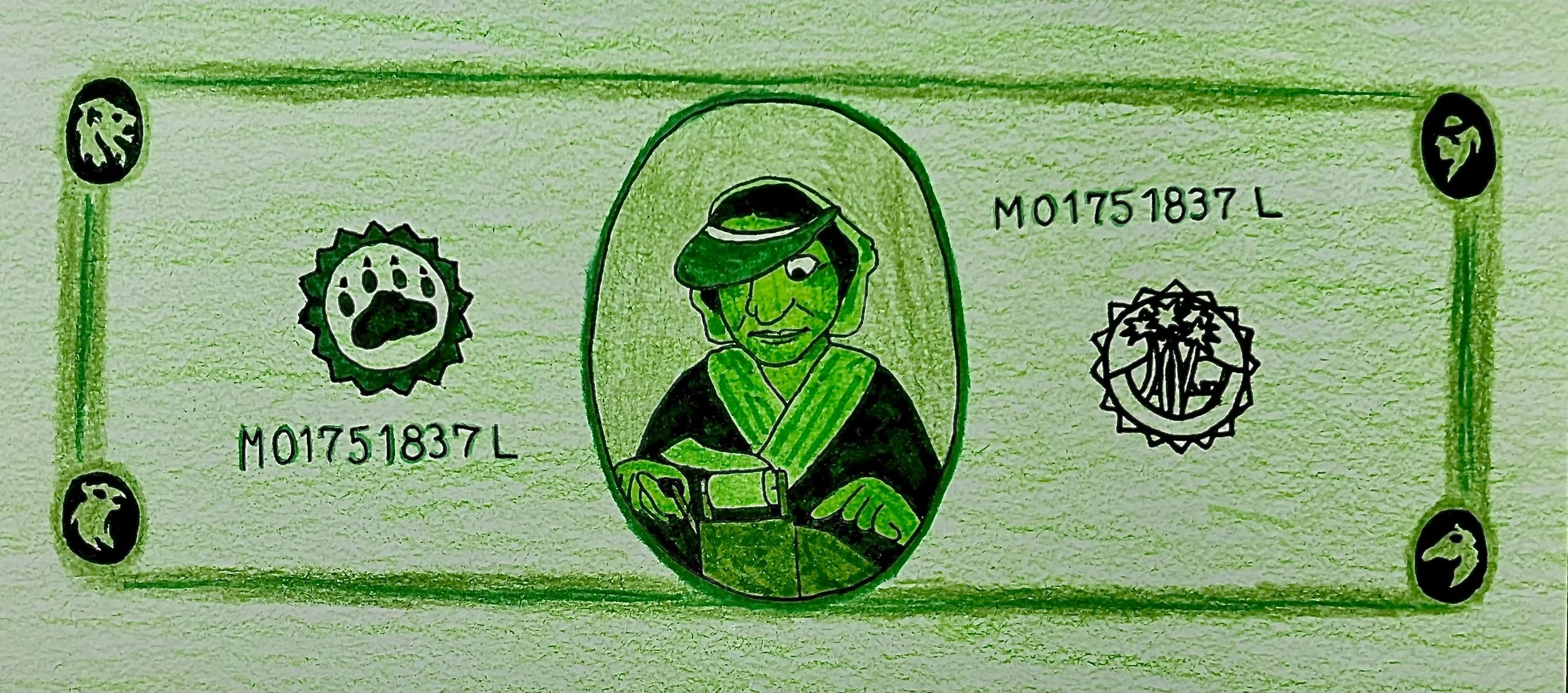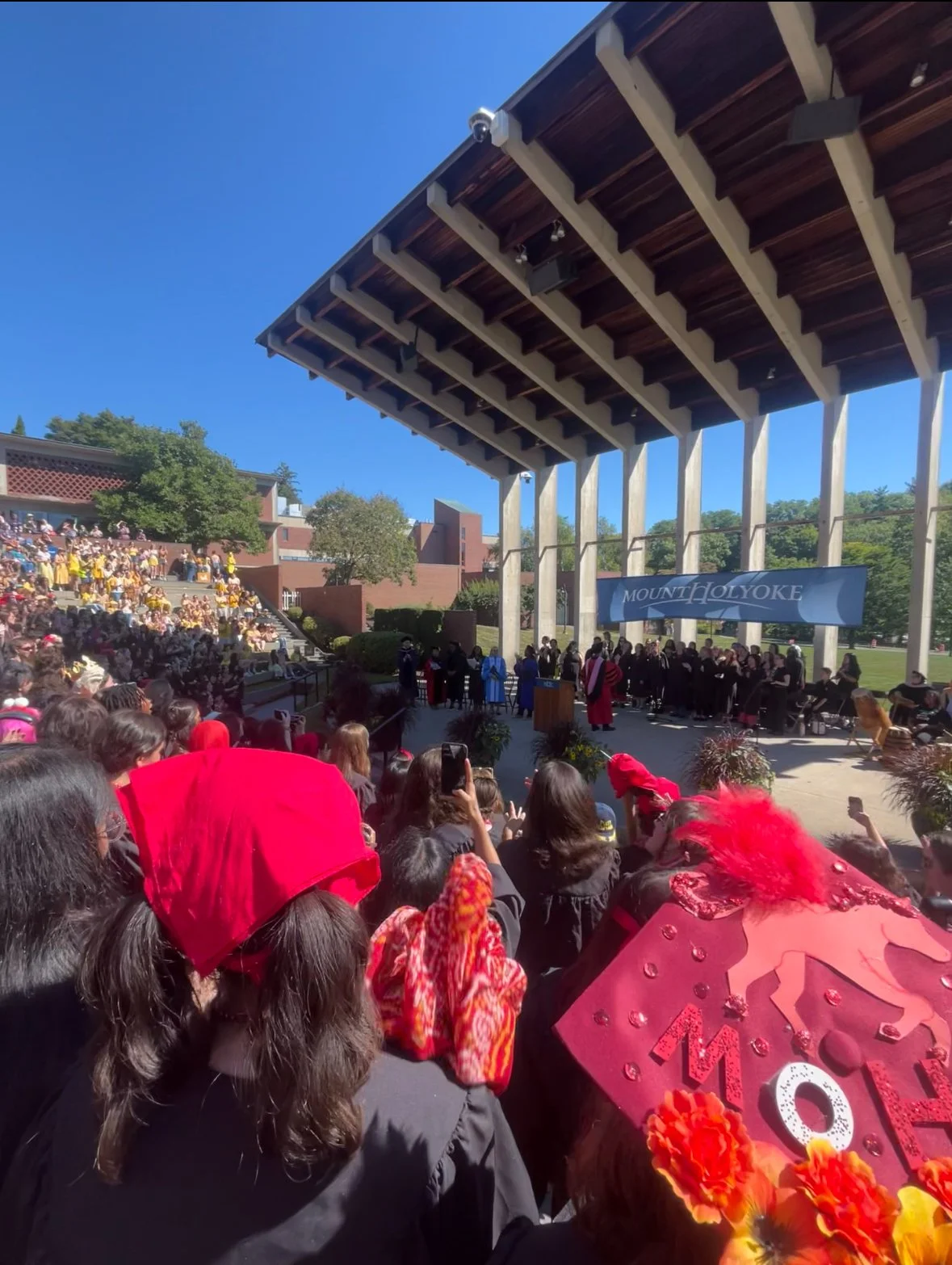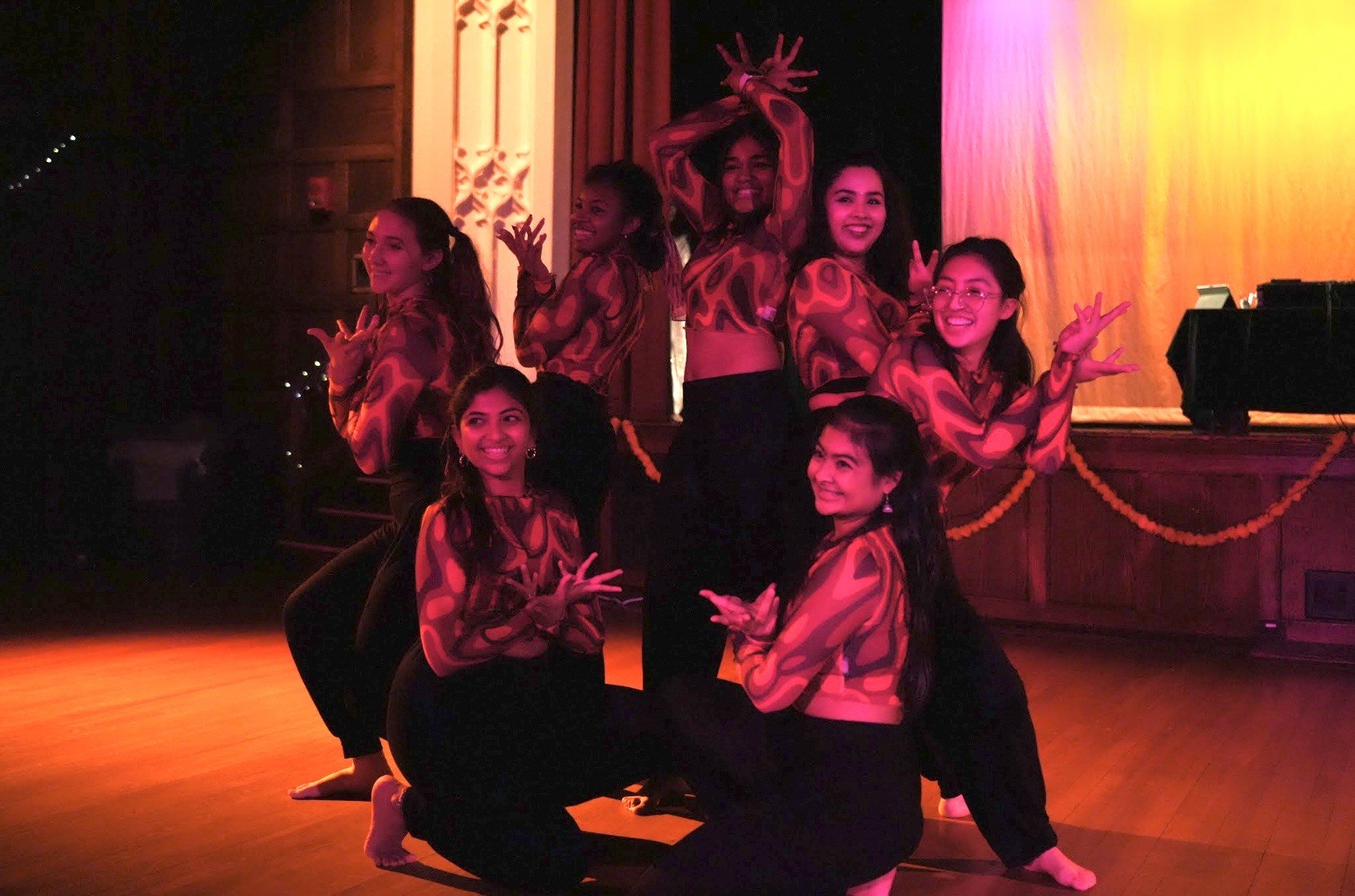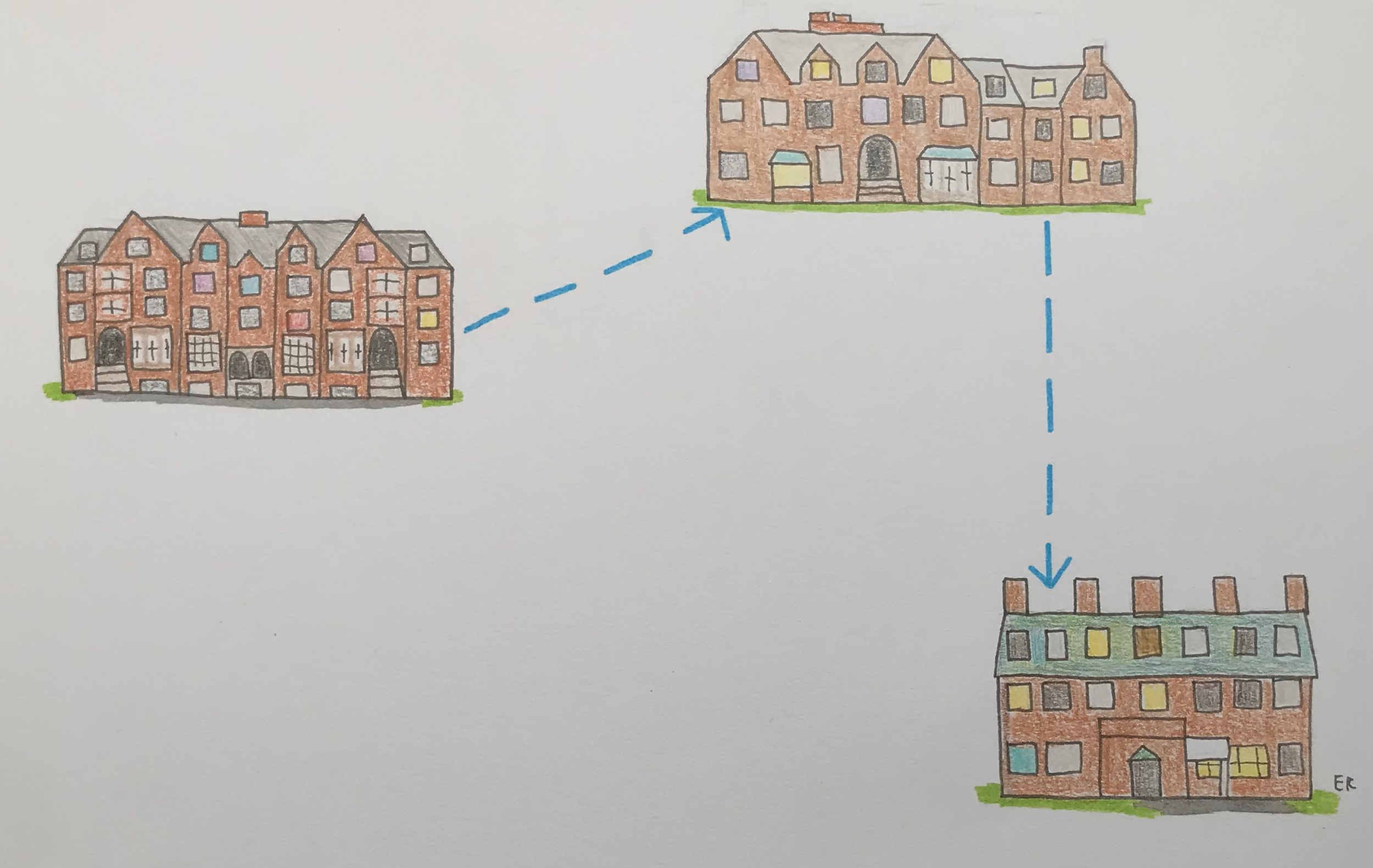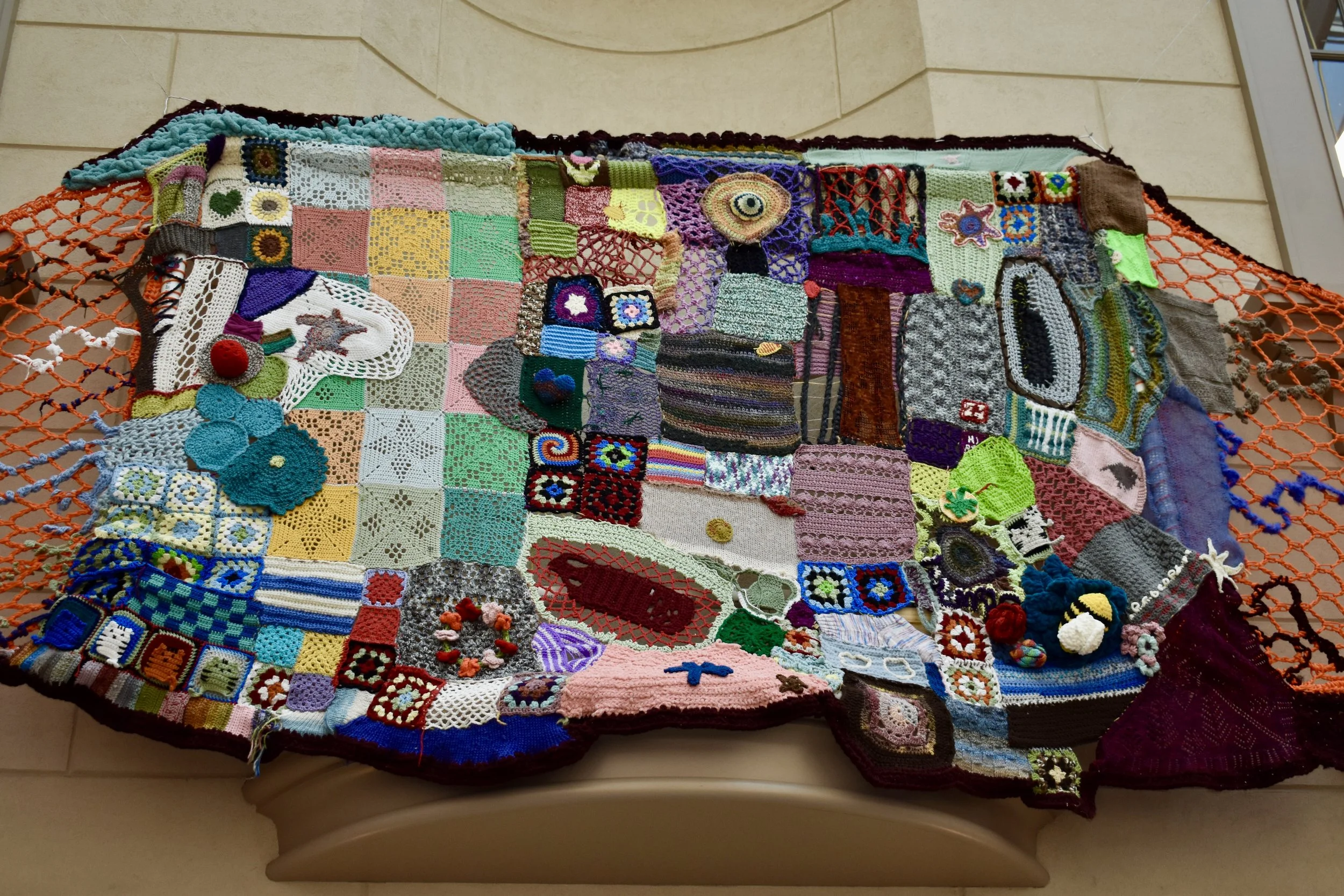By Sydney Wiser ʼ27
Features Section Editor
Mount Holyoke’s Professional and Graduate Education — also known as PaGE — program has offered students in the education sector opportunities for higher education for 13 years, graduating 545 masters students as of May 2025 and serving 330 non-degree students in the past 5 years. The Board of Trustees will hold a vote to potentially retire the program in its entirety in October.
On Sept. 3, 2025, in an email from President Danielle Holley, reports from the College’s various 2024-25 working groups were shared with the Mount Holyoke community.
These working groups, composed of Mount Holyoke faculty members, were created as a part of President Holley’s MHC Forward Strategic Plan, and covered a range of topics from Career Readiness and Exploration to Supporting the Trans and Gender Nonconforming Community.
The Graduate and Professional Programs Working Group — abbreviated as GPPWG — began its first phase in between October and December 2024, and was part of the “Resource Stewardship” pillar of the MHC Forward Strategic Plan, according to the College. GPPWG, along with a consulting group, Hanover Research, was tasked with assessing “both current and potential future Mount Holyoke College programs against the dual benchmarks of reputational enhancement and revenue generation.”
In their May 2025 report, GPPWG found that the PaGE programs “represent an annual drain on College resources,” and that there were few reputational benefits to keeping them operating in their current capacity.
When looking at the net income of the PaGE program over the last four years, GPPWG projected a loss of $157,000 for the 2025 fiscal year. GPPWG also projected flat to declining numbers of enrollees for the 2025 fiscal year, following the trend of the last four years.
GPPWG also noted that while PaGE programs have seen a recent uptick of professional development contracts, which is in part how PaGE programs bring in revenue, “the current federal funding and regulation landscape makes the future of such programs (and revenue from them) uncertain at best.”
Based on their findings, GPPWG recommended the retirement of the program, with an emphasis on supporting PaGE staff, and further investigation into whether the College could adopt other academic programs in place of PaGE that would more effectively bolster the reputation and revenue of Mount Holyoke.
“This recommendation would allow the College to further focus on and support our undergraduate program, including our undergraduate teacher licensure program,” the College said in a statement to the Mount Holyoke News.
The College added that in anticipation of the Board’s decision, Mount Holyoke had paused applications for Spring 2026 enrollment and ensured current enrollees in the PaGE program would be able to finish by summer 2027 at the latest.
For current and former PaGE program students, the news came as a shock.
Alison Beattie, a 2017 alum of the graduate program, described the decision to close the program as “gut-wrenching.”
“To cancel a program where you help garner a workforce that is so deeply important I will never understand. It seems that MHC doesn’t care about investing in young learners in MA unless they are prepared to pay undergraduate tuition,” Beattie said.
Beattie also served on the alum panel when the program was set to be reviewed by the Massachusetts Department of Elementary and Secondary Education and noted that the program had received accolades like the department’s “Approval with Distinction.”
The day before the GPPWG’s report went public, current graduate student Evelyn Bushway ’24 received an email from Provost and Dean of Faculty Lisa Sullivan and Interim Executive Director of Professional and Graduate Education Programs Corinne Miller. “I just remember reading and being super confused and having a hard time understanding it,” Bushway said.
In the email, Bushway was informed of GPPWG’s recommendation to end the PaGE programs. Sullivan and Miller explained that the recommendation was supposed to “allow MHC to focus institutional resources on its mission and strengths as the leading gender-diverse women’s college for undergraduate education.” Sullivan and Miller also stressed that currently enrolled students who did not deviate from their plan of study would be able to complete their degree and encouraged Bushway to fill out a feedback form about the recommendation.
According to Bushway, she has not received any other information from the College’s senior leadership team.
PaGE alum Jazebel Bermudez, who received a master of arts in teaching in English as a Second Language from Mount Holyoke, heard about GPPWG’s report when she was considering returning to the College. Bermudez wants to become the director of a language program and was looking forward to using PaGE’s Teacher Leadership program to help her reach that next step. When she discovered the program might be shut down, Bermudez was shaken.
“My support system that I depended on is gone,” Bermudez said.
Bermudez began studying at Mount Holyoke in 2018 through a program called Urban Teacher Pathways, which helped Holyoke public school educators earn a master of arts in teaching, an initial general education license and at least one other license, including English-language learners.
As a first generation graduate of high school, college and graduate school, Mount Holyoke College gave Bermudez opportunities she did not think were possible. “If it wasn't for Mount Holyoke, I don't think I would be in the position I am today,” Bermudez said.
Bermudez emphasized how the diversity in her classes and her close relationships with professors supported her as she tackled being an educator, new mother and graduate student.
Having studied at the College for her undergraduate degree, Bushway knew the aspects of the College she would appreciate for graduate school. She emphasized the academic rigor she had grown familiar with at the undergraduate level, the support system Mount Holyoke provided through resources like the SAW center, and the opportunity to connect with groups of students with teaching experiences both domestic and international.
The College also had something that few other institutions Bushway knew of, had — a master of arts of teaching in mathematics. This program allows students to concentrate their teaching studies in mathematics while also studying for their masters in education. As someone who had always enjoyed middle school math, Bushway knew that this was the program for her.
“Having a master's that helped me dive deeper into mathematics and [see] how we can facilitate student discussions of math and help [students] have a deeper understanding of math was super important to me,” Bushway explained.
Before graduating from Mount Holyoke in 2024, Bushway already had a teaching job and a commitment to Mount Holyoke’s graduate school lined up.
After the recommendation to terminate the PaGE program was made public, alums and current students rallied together in protest. Across all 11 graduate classes of the master of arts in mathematics program, 46 alums sent a letter attached with written testimonies about the impact of the program to the College’s senior officials.
“Because of the nature of our work as educators, the work of every graduate multiplies exponentially through every student we teach, teacher we develop, and organization we lead. It is not an exaggeration to claim millions of students and educators have been positively impacted by this group of co-signers and the scores of other alumni of the program,” part of the letter reads. 40 alums of the program also replied to the email thread signaling their support.
Bushway put together a similar email for her graduating class cohort.
A decision will be made in October when the Board of Trustees votes on the recommendation from GPPWG. Regardless of the outcome, the College said, “Mount Holyoke emphasizes that PaGE graduates will continue to be a valued part of the MHC alum community. Their contributions to education and public service reflect the College’s enduring mission of lives of purposeful leadership, and the College will always be incredibly proud of their accomplishments and academic journeys.”
Karishma Ramkarran ’27 contributed fact checking.



